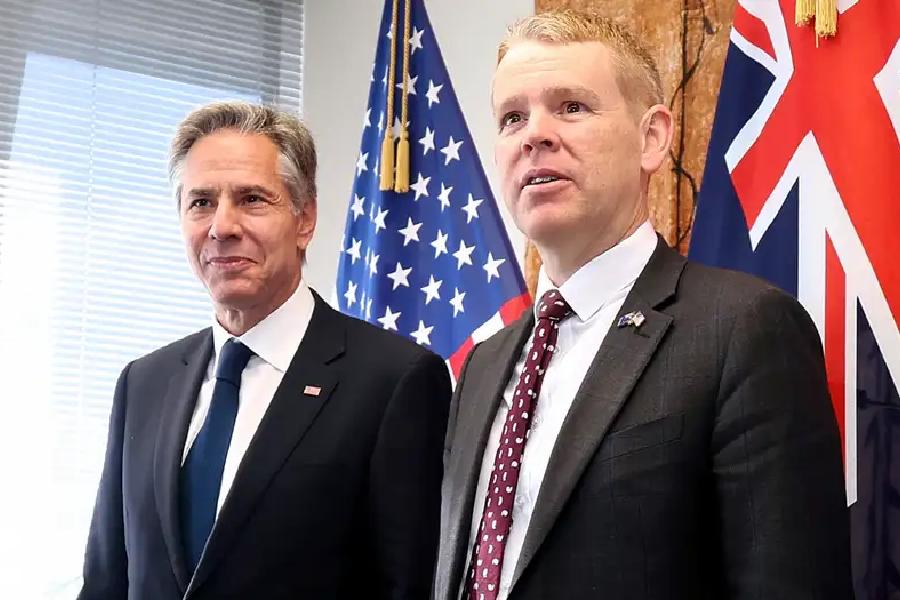Antony Blinken opened the door to New Zealand and other nations looking to become involved in the AUKUS pact, however any involvement is likely to test Wellington's relations with Beijing.
The US has given a clear indication that there is room for New Zealand and other countries to become involved in the AUKUS trilateral defense partnership. The security pact currently involves Australia, the UK and the US.
"The door's very much open for New Zealand and other partners to engage as they see appropriate going forward," Blinken told a news conference in Wellington.
"We've long worked together on the most important national security issues. And so as we further develop AUKUS, as I said, the door is open to engagement." Blinken is in New Zealand as part of a three-country visit to the pacific.
New Zealand's Prime Minister Chris Hipkins on Wednesday said his country was "open to conversations" about a possible role in AUKUS, as long as it did not relate to the development of nuclear-powered submarines.
Wellington's position was reiterated by Foreign Minister Nanaia Mahuta on Thursday who said New Zealand was "not prepared to compromise or change our nuclear-free position” and that it continued to support a nuclear-free Pacific.
The multi-stage AUKUS project is planned to culminate in the late 2030s and early 2040s with British and Australian production and operation of a new submarine fleet and will include advanced US technologies.
The agreement will also see a force of US and British submarines deployed in Australia, to help train Australian crews and bolster deterrence.
New Zealand and Australia are the main US allies in the South Pacific.
Wellington faces a diplomatic challenge due to its heavy reliance on Beijing as its main trading partner. Recently, Hipkins visited Beijing to strengthen the economic ties between the two countries. However, involvement in the AUKUS pact would likely test that relationship, as China considers the agreement as destabilizing the region.










